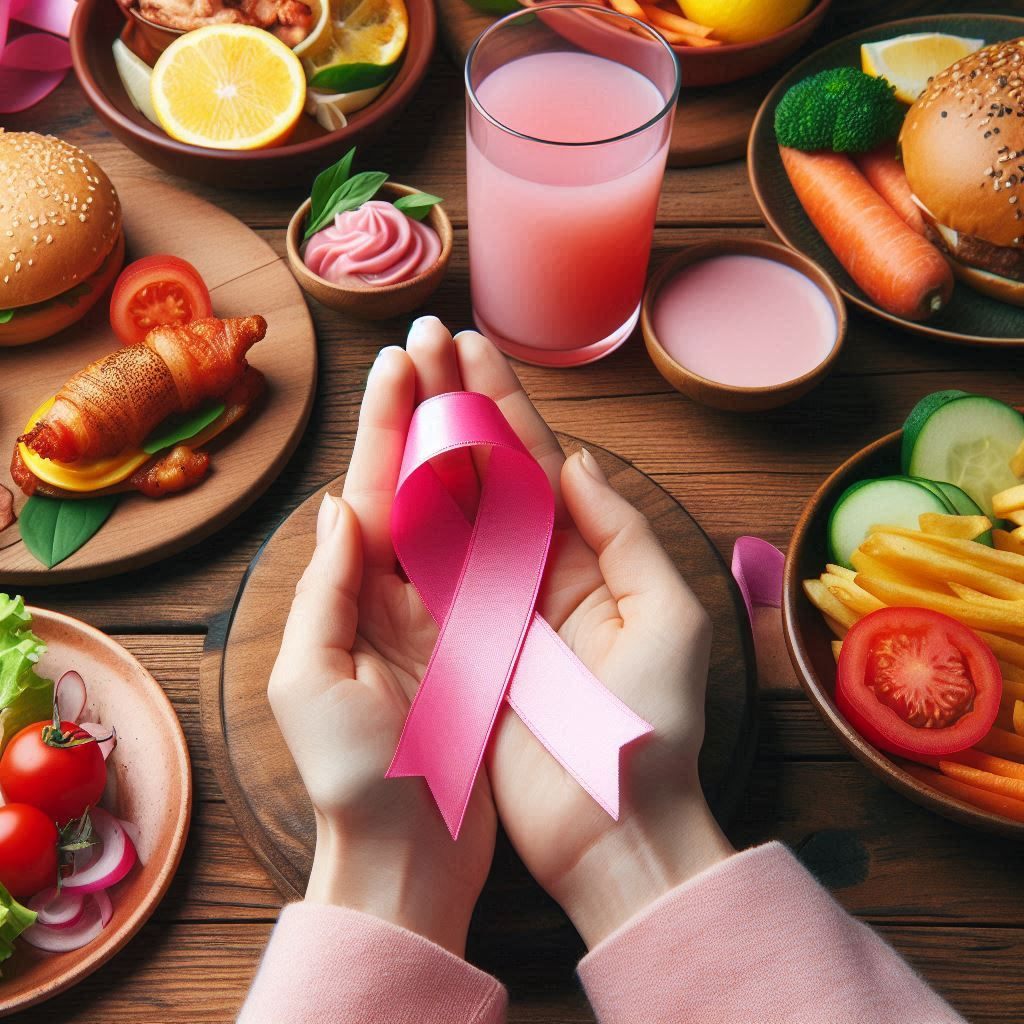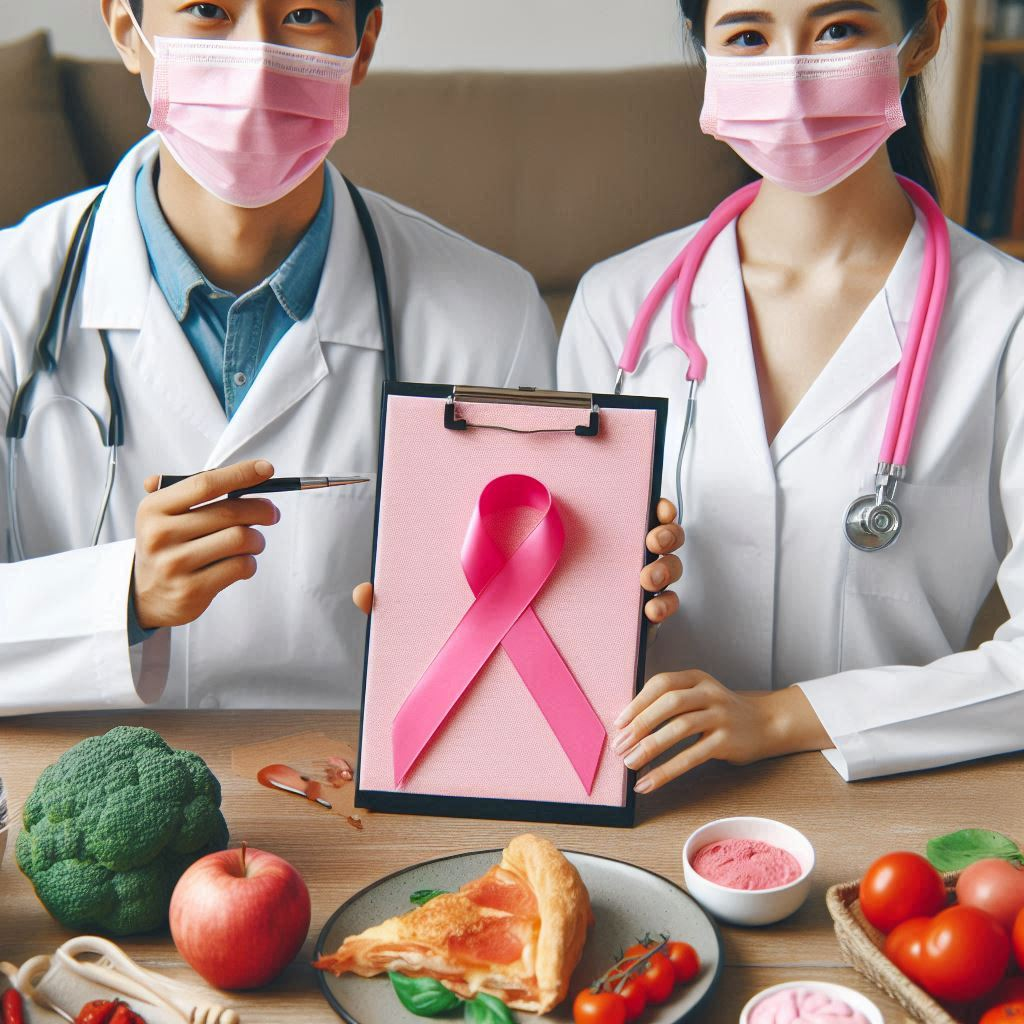
Breast Cancer and Nutrition: Eating Right During Treatment

Breast cancer is a challenging journey that affects not just the individual diagnosed but their loved ones as well. Alongside medical treatments, nutrition plays a pivotal role in enhancing recovery, managing symptoms, and improving overall well-being during this difficult time. While each person’s nutritional needs may vary, understanding the importance of diet can empower patients to make informed food choices that support their treatment and recovery.
The Role of Nutrition in Breast Cancer Treatment
Nutrition serves as a fundamental pillar of health, particularly during breast cancer treatment. It helps maintain strength, supports the immune system, and minimizes the side effects of treatments such as chemotherapy, radiation, and surgery. A well-balanced diet can also help manage weight, which is crucial, as both underweight and overweight conditions can affect treatment outcomes and recovery.
Maintaining Energy Levels
Cancer treatments can lead to fatigue and loss of appetite. Consuming nutrient-dense foods can help maintain energy levels. It’s vital to focus on foods that provide calories and nutrients without overwhelming the digestive system.
- Healthy Fats: Embrace the goodness of avocados, nuts, seeds, and olive oil . These foods provide concentrated calories and essential fatty acids, which are beneficial for hormone balance and overall health.
- Complex Carbohydrates: Whole grains such as brown rice, quinoa, and whole-wheat pasta are excellent choices. They’re like little powerhouses, packed with energy, fiber, and a bunch of vitamins and minerals. These carbohydrates can help maintain stable blood sugar levels, reducing energy crashes that can occur with processed sugars.
Building and Repairing Tissues
Protein is essential for healing and repairing tissues, especially after surgery or during the recovery phase. Adequate protein intake can help combat muscle wasting and maintain immune function.
- Lean Proteins: Include sources like poultry, fish, eggs, dairy, legumes, and plant-based proteins such as tofu and tempeh. These options can support muscle maintenance and repair.
- Protein Smoothies: If appetite is low, consider protein-rich smoothies. Blend fruits with yogurt or protein powder for an easy-to-consume, nutrient-dense option.
Managing Side Effects
Breast cancer treatments often come with a range of side effects, including nausea, changes in taste, and difficulty swallowing. Adjusting your diet can help manage these symptoms:
- Nausea: To alleviate nausea, opt for small, frequent meals rather than large ones. Ginger tea or ginger-infused foods can also be soothing. Try bland foods like crackers or toast if you’re struggling with nausea.
- Taste Changes: Many people undergoing chemotherapy report changes in taste perception. If foods taste metallic or bland, consider incorporating flavorful herbs and spices to enhance the taste of meals without added salt or sugar.
- Difficulty Swallowing: Soft foods, purees, and smoothies can be easier to consume. Foods like oatmeal, mashed potatoes, and soups can provide comfort and nourishment.
Hydration is Key
Staying hydrated is crucial, particularly if treatment leads to side effects like vomiting or diarrhea. Aim to gulp down plenty of fluids throughout the day.
- Water: Always the best choice. Infuse water with fruits like lemon or berries for a refreshing twist.
- Broths and Soups: These can provide hydration along with additional nutrients. Homemade vegetable broth can be a great source of vitamins.
- Herbal Teas: Non-caffeinated herbal teas can also help keep you hydrated while providing soothing benefits.
Micronutrients for Immune Support
Certain vitamins and minerals can bolster the immune system and promote healing. Go wild with colorful fruits and veggies to get a rainbow of nutrients.
- Antioxidants: Antioxidants are like cellular superheroes. Include foods like citrus fruits, nuts, spinach, and sweet potatoes to enhance your antioxidant intake.
- Phytonutrients: Foods rich in phytonutrients, such as cruciferous vegetables (broccoli, kale, cauliflower), berries, and green tea, can provide additional protective effects.
Special Considerations for Hormonal Treatment
For those undergoing hormonal therapies, maintaining a healthy weight and managing estrogen levels through diet can be beneficial. Focus on:
- Plant-Based Foods: Incorporate more plant-based foods, which can help lower estrogen levels. Aim for a diet rich in fruits, vegetables, whole grains, and legumes.
- Limit Processed Foods: Reduce intake of processed foods, refined sugars, and unhealthy fats, which can contribute to inflammation and hormonal imbalances.
Planning Your Meals
Planning meals ahead can help you maintain a nutritious diet during treatment.
- Meal Prep: Preparing meals in advance can alleviate the stress of cooking when energy levels are low. Cook large batches of soups, stews, and casseroles that can be frozen and easily reheated.
- Grocery List: Keep a grocery list of nutritious staples on hand. Include items like fresh fruits and vegetables, whole grains, lean proteins, and healthy snacks.
Seeking Support
Navigating nutrition during breast cancer treatment can be overwhelming. Don’t be shy, reach out to a registered dietitian who’s an expert in oncology nutrition. They can provide personalized guidance based on individual health needs, treatment plans, and dietary preferences.
Conclusion
Nutrition is a vital aspect of breast cancer treatment that should not be overlooked. By focusing on a balanced diet rich in nutrients, individuals can support their bodies during treatment, manage side effects, and promote healing. Remember that every person’s experience is unique, and it’s essential to listen to your body and adjust your diet as needed. Through mindful eating and proper nutrition, patients can empower themselves on their journey to recovery.











